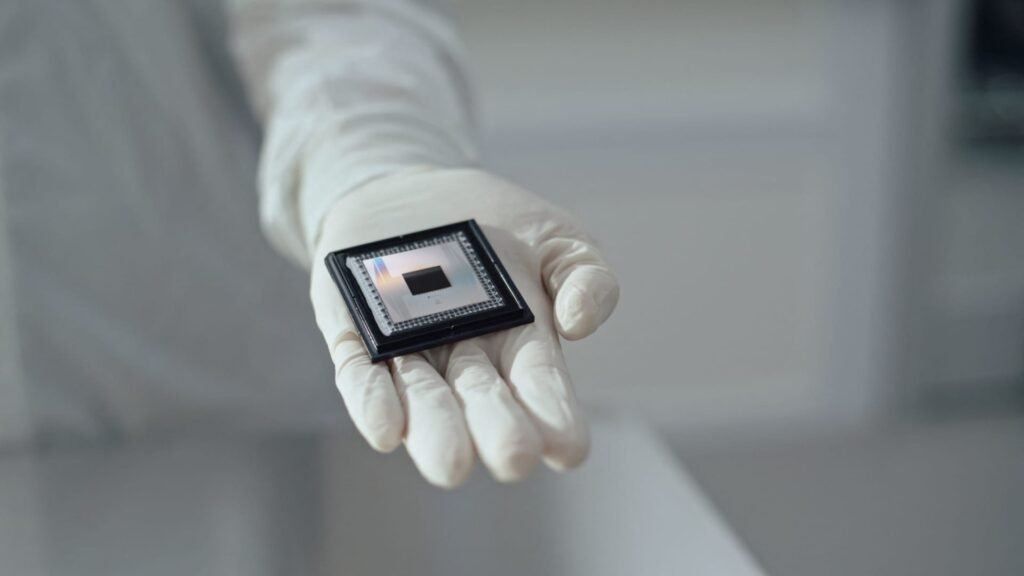Google’s recent announcement of the arrival of Willowa quantum chip that has been reduced the error tendencies Some of its predecessors represent a milestone in efforts to bring quantum computing into the real world and could change the way we think about cryptocurrency risk in the years to come.
Willow’s speed is almost unbelievable – according to Googleis capable of performing a calculation in less than five minutes that would take one of today’s fastest supercomputers 10 septillion years to solve. Ten septillion is 10,000,000,000,000,000,000,000,000 years.
But the accuracy of quantum computing has also been a big problem so far, because quanta are like a garden hose that is running at full speed and no one is holding it: the water flows out quickly, but its destination is not always precise. Willow’s combination of speed and accuracy could theoretically give hackers the tools to unlock the algorithms that power Bitcoin and other cryptocurrencies.
Qubits and Bitcoin can coexist for now
If you don’t understand (and not many people do) what constitutes quantum computing – qubits – Tim Hollebeek, industry technology strategist at security firm DigiCert, has a simplistic way of thinking about the breakthrough. He says, imagine a maze and how a classical computer would try to find its way through the maze from start to finish. It would try one possible path at a time. “A quantum computer would be able to try every path at the same time, which would lead to a much faster solution,” Hollebeek said.
While Willow may not be suitable for real-world applications Still, Willow’s speed and accuracy will help pave the way for larger quantum computers.
“Part of the problem with qubits is that they are unstable and produce errors. This chip has significant error correction capabilities, which mitigates some of the qubit problems,” said Hollebeek.
That means chips improved after Willow’s breakthrough could help hackers target crypto – but at least for now, the concern is only theoretical.
“Quantum computers can theoretically solve this much faster and pose a threat to today’s cryptographic algorithms if a quantum computer with enough qubits could be developed,” Hollebeek said. But he added that the real-world reason you can breathe easier when owning crypto today is simple. “There is none today and is not expected for the next 5, 10, 15 years,” he said, with the fastest five-year timeline dependent on an unforeseen technological breakthrough.
A decade-long lead for crypto
A Google spokesperson told CNBC that Willow and crypto could coexist. “The Willow chip is not capable of breaking modern cryptography,” he said, adding that Google also believes that quantum technology with this capability is still years away.
According to Park Feierbach, a decentralized finance technology expert and CEO of Radiant Commons, even if Willow dramatically increased the speed at which crypto could be cracked, the Quantum chip would still need many times the universe age to do it. According to NASA, the universe is 13.7 billion years old.
“There is almost no reason to use Willow in this technology in a way that could make manageable progress. It would still take too long,” said Feierbach.
“Estimates suggest that we are at least 10 years away from cracking RSA and that it would require about 4 million physical qubits,” the Google spokesperson said. RSA is an encryption system used in cryptocurrencies.
To illustrate: Google’s processors now have a size of around 100 physical qubits.
“Quantum-safe” algorithms
The Google spokesperson emphasized that the timeline for quantum breakthroughs is largely shared and Willow has not changed it.
“Google is on the right track with our planned roadmap,” he said. “The security community has long been aware of the planned timeline for breaking asymmetric encryption and is working to define standards and jointly implement new algorithms that can withstand attacks from both classical and quantum computers,” the spokesperson added.
In fact, Hollebeek says the crypto industry is working on “quantum-safe” crypto.
The National Institute of Standards and Technology (NIST) has released several quantum-safe algorithms that are resistant to attacks from future quantum computers, Hollebeek said, and NIST has a roadmap for governments and industry to use these algorithms to ensure the country’s security and Trade secrets.
“Google and other industry leaders have supported standardization and experimented with the algorithms as drafted,” the Google spokesperson said.
Even though quantum is efficient at deciphering algorithms (traditional crypto equations based on the factorization of large prime numbers), they are not infallible, and therein lies the promise of quantum-safe crypto.
“They’re really, really good at some things, but not everything,” Hollebeek said, noting that breaking conventional asymmetric cryptography happens to be one of the things they’re really good at. “Fortunately, they perform poorly at other difficult math problems, and asymmetric cryptography can be updated to use these difficult math problems instead of factorization,” he said.
Taqi racing, Assistant professor of electrical and computer engineering at the University of Massachusetts Amherst said existing cryptos need to be further developed to fend off qubits. “As the potential of quantum computers to break existing cryptography becomes increasingly concerning, new cryptocurrencies specifically designed for quantum security may be developed. These new quantum cryptos would integrate PQC, cryptographic algorithms that are resistant to the computing power of quantum computers,” Raza said.
Jeremy Allaire, co-founder, chairman and CEO of digital currency company Circle, said in an interview with CNBC last week that the risk is real, but his focus on the future remains focused on the opportunities that will arise. “The bottom line is that quantum crypto means you can both more easily unlock things that had bad old locks and also create better locks,” Allaire said. “So quantum crypto – this quantum will actually be a huge turbo for crypto computing, for crypto applications and for crypto money.”
Raza expects that the broader changes brought about by quantum computing will ultimately extend beyond crypto. Breakthroughs will make devices and software faster, revolutionize AI, and improve data security with highly secure encryption methods. In everyday life, there will be advances in computing, healthcare, energy and security, Raza said, and therefore it is not the crypto industry that we should think about in isolation while these changes are still unfolding. “They will probably change the industry,” he said.





